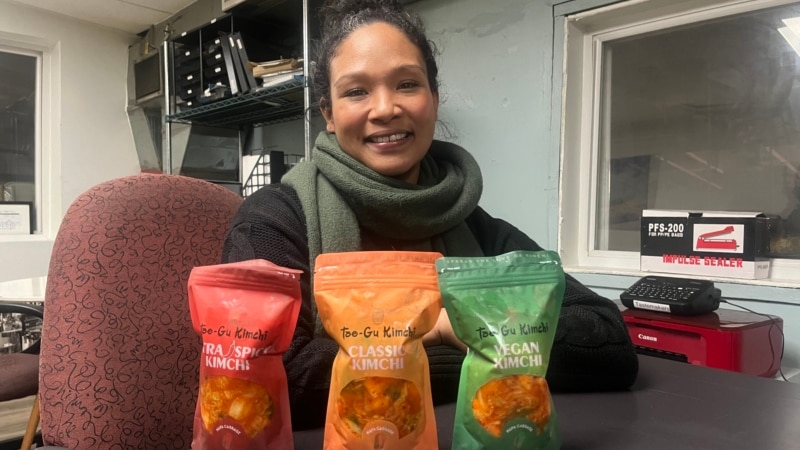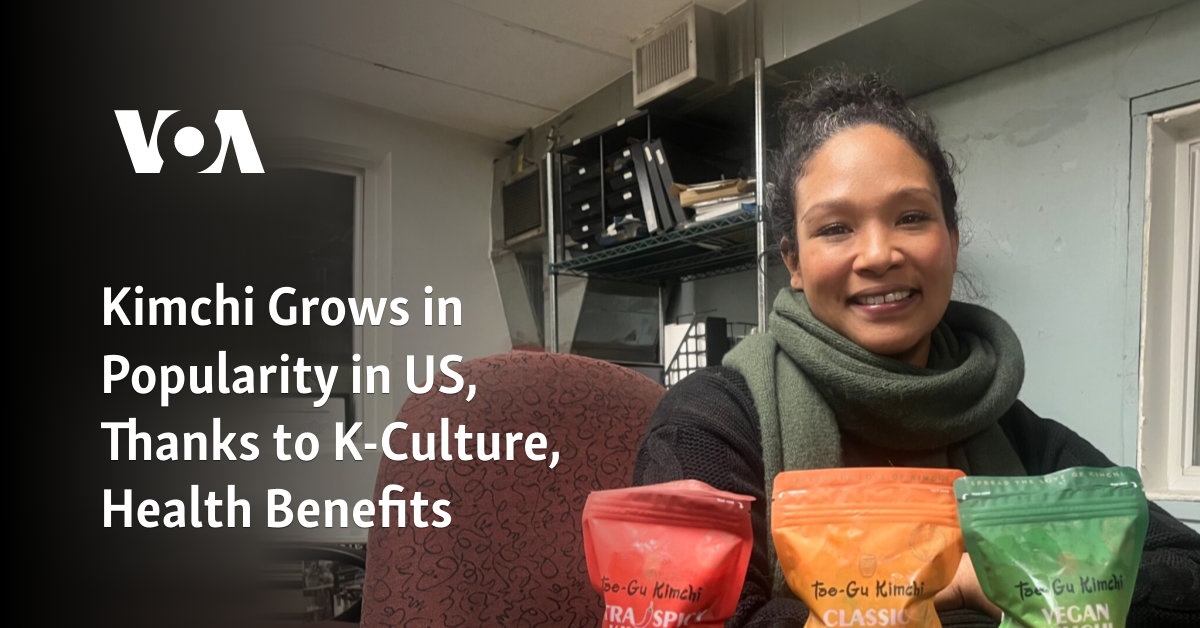This website uses cookies so that we can provide you with the best user experience possible. Cookie information is stored in your browser and performs functions such as recognising you when you return to our website and helping our team to understand which sections of the website you find most interesting and useful.


washington —
South Korean kimchi exports hit a record high amid a global surge in the popularity of Korean culture, hitting 44,041 tons in 2023, a 7.1% increase from 42,544 tons exported in 2021.
Kimchi, a traditional Korean dish made by fermenting cabbage or other vegetables, was exported to 92 countries from South Korea last year, with the United States and Japan being the top customers, according to BusinessKorea, a monthly magazine.
The United States imported more than 10,000 tons of kimchi in 2023, and Japan imported more than 20,000 tons. Kimchi exports to the United States have grown significantly in the past few years, increasing from $14.8 million in 2019 to $29 million in 2022, according to The Korea Daily.
Some experts see a connection between this rise in exports and the rising popularity of Korean entertainment content, such as K-pop and K-dramas. According to Forbes, U.S. viewership of Korean dramas rose 200% from 2019 to 2021, with TV shows like "Squid Game" topping the Netflix viewership charts in the United States.
Others attribute the rising popularity of kimchi to its health benefits, as fermented foods expand the diversity of digestive tract microbes.
Patrice Cunningham, founder and CEO of Tae-Gu Kimchi in Washington, spoke about the increase in popularity of kimchi in the United States.
"Kimchi is a huge part of the Korean diet," she said. "They eat it as a side dish with almost every meal. ... In the states now, we're kind of implementing that same style of eating."
Cunningham makes and distributes kimchi with her mother, selling both vegan and non-vegan varieties made from napa cabbage.
"I always knew that my mom had a really great kimchi recipe, and I remember saying to myself for a while that I wanted to bottle it one day and sell it," Cunningham said.
She attends 15 to 16 farmers markets a week in the main season and has won multiple grants for her business, contributing to its growth.
She said many of their customers focus on their "gut health … and so they buy our kimchi for that."
K-culture boosts popularity
Another Washington business that sells kimchi is Rice Market. Partner Sak Pollert said kimchi sales have increased significantly over the past two years.
He said more customers come in "with recipes on their phone, looking for Korean and other Asian ingredients, too."
As to kimchi's rise in popularity, particularly in the United States, Pollert said that many in Washington are world travelers already familiar with kimchi but don't like the smell.
"But now, they learned it's probiotic foods that taste good and help with digestion," he said. "It helps make other foods taste better, so they get over the smell quickly."
Pollert said he thinks that K-content has played an important role in bolstering kimchi's global popularity. K-dramas "did a phenomenal job promoting kimchi and Korean food and drinks, especially soju," a Korean grain-based alcohol.
He noted that restaurant and dinner scenes in many K-dramas feature ajummas — Korean for married or middle-aged women — gathering around a table to gossip and make kimchi before winter.
South Korea promotes its cuisine
This rise in popularity of kimchi, though influenced by multiple factors, is a part of a broader plan by the South Korean government to push Korean cuisine worldwide.
"South Korea's government and corporations are thinking of ways to promote Korean food and profit from it," National Public Radio's Anthony Kuhn said in an interview with Yang Joo-Pil, an official at the South Korean Ministry of Agriculture, Food and Rural Affairs.
Yang said that each year, about 10 food items are chosen for product placement in popular dramas, and Korean foods are sold at K-pop concerts.
In Washington, efforts to promote Korean food and spread Korean culture are evident in the work of the Korean Cultural Center. Last November, the center partnered with Tae-Gu Kimchi for "DC's First Kimjang: Making and Sharing Kimchi."
Kimjang in Korea is an event that occurs once or twice a year "as a way for communities to collectively stock up on and share essential foods," according to the Korean Cultural Center's event page.
At the kimjang event, participants had the opportunity to try kimchi over rice and make their own kimchi in a hands-on workshop.



 Africana55 Radio
Africana55 Radio 
